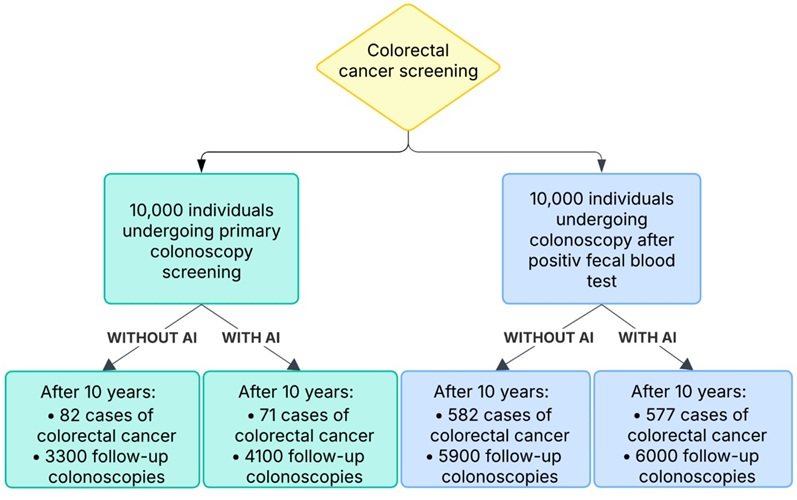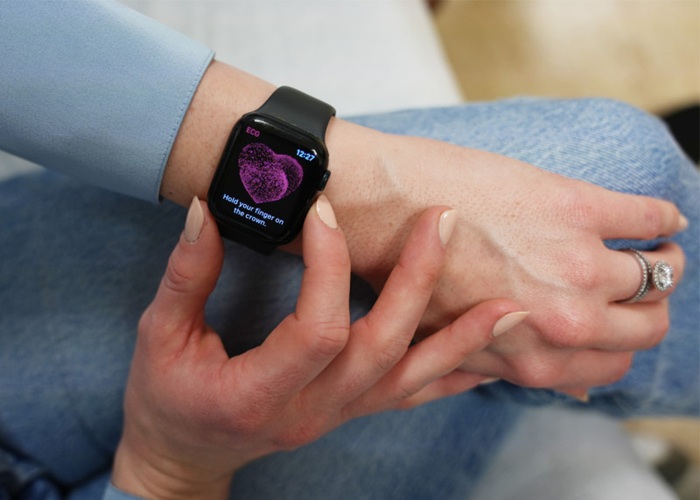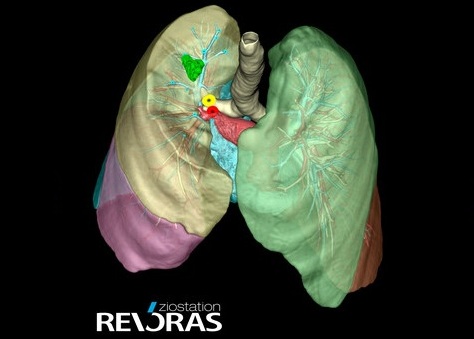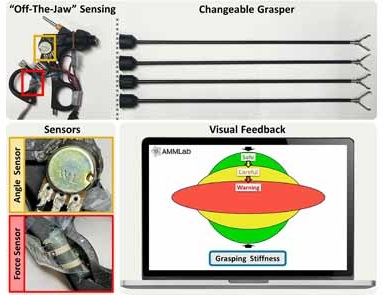Next Gen ICU Bed to Help Address Complex Critical Care Needs
|
By HospiMedica International staff writers Posted on 30 Jun 2023 |

As the critical care environment becomes increasingly demanding and complex due to evolving hospital needs, there is a pressing requirement for innovations that can facilitate patient recovery. Now, a state-of-the-art ICU bed developed in collaboration with nurses and therapists aims to reduce the burden on critical care teams. The bed incorporates novel technology and features to assist care teams in addressing common pulmonary, skin, and mobility challenges in the ICU, while also promoting patient recovery.
Baxter International (Deerfield, IL, USA) has introduced its latest product, the Hillrom Progressa+ bed for the ICU, in the U.S. market, with plans for worldwide expansion slated to commence later this year. The Progressa+ bed incorporates new features designed to make patient care easier for nurses, while simultaneously supporting patient recovery. The ICU bed comes with technologies specifically created to assist with pulmonary needs, protect the skin, and support early mobility protocols. Progressa+ offers in-bed percussion, vibration, and continual lateral rotation therapies, aimed at reducing pulmonary complications linked to immobility. Moreover, the enhanced bed frame allows for easier access to the head of the bed for intubation and other procedures.
The ICU bed also features improved support surfaces to optimize skin protection and wound healing. The bed's new top cover facilitates easier cleaning. Used in combination with an integrated lift system, Progressa+ helps care teams in adhering to patient mobility protocols, while simultaneously minimizing clinician injury risk. The one-button FullChair with sit-to-stand Chair Egress feature allows clinicians to move patients safely and effortlessly. Baxter has made Progressa+ available in the U.S., and plans are in place to launch this advanced ICU bed in additional global markets over the next 18 months.
“Our new and improved Progressa+ is a ‘true ICU bed,’ designed for the realities of critical care, where patient needs are high and clinical staff can be stretched thin,” said Julie Brewer, president, Baxter’s Patient Support Systems, Global Surgical Solutions and Care Communications businesses. “We asked ICU care teams how we could make their jobs easier, and then designed the next generation of our leading ICU bed with features that help address challenges, such as reducing the strain on nursing resources, lessening the risk of pressure injuries and simplifying patient positioning.”
Related Links:
Baxter International
Latest Patient Care News
- Portable Biosensor Platform to Reduce Hospital-Acquired Infections
- First-Of-Its-Kind Portable Germicidal Light Technology Disinfects High-Touch Clinical Surfaces in Seconds
- Surgical Capacity Optimization Solution Helps Hospitals Boost OR Utilization

- Game-Changing Innovation in Surgical Instrument Sterilization Significantly Improves OR Throughput
- Groundbreaking AI-Powered UV-C Disinfection Technology Redefines Infection Control Landscape
- Clean Hospitals Can Reduce Antibiotic Resistance, Save Lives
- Smart Hospital Beds Improve Accuracy of Medical Diagnosis
- New Fast Endoscope Drying System Improves Productivity and Traceability
- World’s First Automated Endoscope Cleaner Fights Antimicrobial Resistance
- Portable High-Capacity Digital Stretcher Scales Provide Precision Weighing for Patients in ER
- Portable Clinical Scale with Remote Indicator Allows for Flexible Patient Weighing Use
- Innovative and Highly Customizable Medical Carts Offer Unlimited Configuration Possibilities
- Biomolecular Wound Healing Film Adheres to Sensitive Tissue and Releases Active Ingredients
- Wearable Health Tech Could Measure Gases Released From Skin to Monitor Metabolic Diseases
- Wearable Cardioverter Defibrillator System Protects Patients at Risk of Sudden Cardiac Arrest
- World's First AI-Ready Infrasound Stethoscope Listens to Bodily Sounds Not Audible to Human Ear
Channels
Artificial Intelligence
view channel
Innovative Risk Score Predicts Heart Attack or Stroke in Kidney Transplant Candidates
Heart researchers have utilized an innovative risk assessment score to accurately predict whether patients being evaluated for kidney transplants are at risk for future major cardiac events, such as a... Read more
AI Algorithm Detects Early-Stage Metabolic-Associated Steatotic Liver Disease Using EHRs
Liver disease, which is treatable when detected early, often goes unnoticed until it reaches advanced stages. Metabolic-associated steatotic liver disease (MASLD), the most prevalent form of liver disease,... Read moreCritical Care
view channel
First-Of-Its-Kind AI-Powered Probability Scoring System Assesses Heart Failure with Preserved Ejection Fraction
Heart failure with preserved ejection fraction (HFpEF) is one of the most difficult types of heart failure to diagnose due to the intricate interaction between various clinical and echocardiographic factors.... Read more
AI-Assisted Colonoscopy Detects More Polyps but Has Modest Effect on Cancer Risk
Colorectal cancer is among the most common cancers in the Western world. Currently, screening is performed using a test that detects blood in the stool (FIT screening). If the test identifies a certain... Read more
Wearables Could Reduce Need for Continuous Blood Thinners in Patients with Atrial Fibrillation
Atrial fibrillation (AFib) is the most prevalent heart arrhythmia, affecting over 5 million individuals in the United States, with projections suggesting that number could rise to 12.1 million by 2030.... Read moreSurgical Techniques
view channel
Tiny Robotic Tools Powered by Magnetic Fields to Enable Minimally Invasive Brain Surgery
Over the past few decades, there has been a significant surge in the development of robotic tools designed to facilitate minimally invasive surgeries, improving recovery times and patient outcomes.... Read more
Magnetic Tweezers Make Robotic Surgery Safer and More Precise
Microrobots are small-scale robots designed using nanotechnology, and they hold significant potential for various medical applications, including surgery, targeted drug delivery, and biopsy.... Read moreHealth IT
view channel
Printable Molecule-Selective Nanoparticles Enable Mass Production of Wearable Biosensors
The future of medicine is likely to focus on the personalization of healthcare—understanding exactly what an individual requires and delivering the appropriate combination of nutrients, metabolites, and... Read more
Smartwatches Could Detect Congestive Heart Failure
Diagnosing congestive heart failure (CHF) typically requires expensive and time-consuming imaging techniques like echocardiography, also known as cardiac ultrasound. Previously, detecting CHF by analyzing... Read morePoint of Care
view channel
Handheld, Sound-Based Diagnostic System Delivers Bedside Blood Test Results in An Hour
Patients who go to a doctor for a blood test often have to contend with a needle and syringe, followed by a long wait—sometimes hours or even days—for lab results. Scientists have been working hard to... Read more
Smartphone-Enabled, Paper-Based Quantitative Diagnostic Platform Transforms POC Testing
Point-of-care diagnostics are crucial for public health, offering rapid, on-site testing that enables prompt diagnosis and treatment. This is especially valuable in remote or underserved regions where... Read moreBusiness
view channel
Expanded Collaboration to Transform OR Technology Through AI and Automation
The expansion of an existing collaboration between three leading companies aims to develop artificial intelligence (AI)-driven solutions for smart operating rooms with sophisticated monitoring and automation.... Read more


















